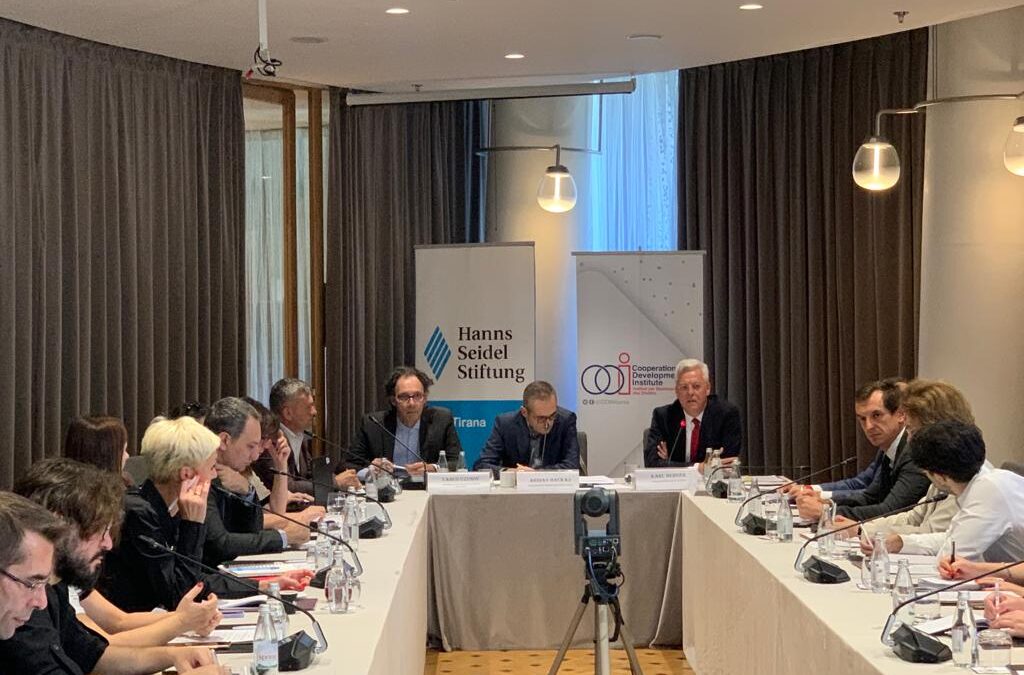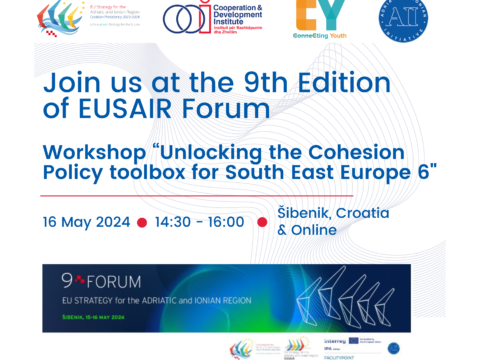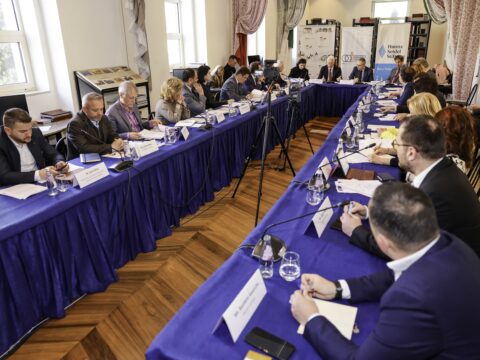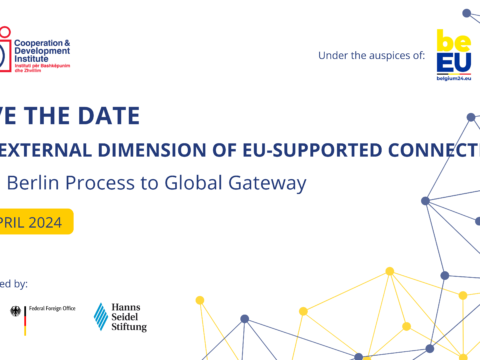06.11.2023
MAIN TAKEAWAYS AND NEXT STEPS OF THE BERLIN PROCESS IN 2023

CDI at the 9th EESC Civil Society Forum in Thessaloniki
November 2, 2023
Update on Common Regional Market 4 Mobility Agreements (MAs)
December 1, 2023Cooperation and Development Institute with the support of Hanns Seidel Stiftung organized on 30 October, in Tirana, the workshop on the “Main takeaways and next steps of the Berlin process – October 2023”.
Mr. Ardian Hackaj, Coordinator of the Tirana Connectivity Forum/CDI emphasized the main features that identify the Berlin Process (BP): i) mobilization of political will; ii) an innovative format where willing EU Member states (not all 27) are involved; iii) focus on concrete impact and instruments such as good governance, connectivity, and regional cooperation; (iv) inclusion of the parliamentary dimension; (v) allowing South East Europe 6 (SEE6) countries to take initiative, and not only agreeing on already drafted proposals; and, (vi) shifting the EU policy-making dynamics in SEE6 from accountability to policy learning.
The keynote address continued with by Mr. Klaus Fiesinger, Regional Director of South-East Europe, Hanns Seidel Foundation who stressed the importance of focusing on the outcomes and the path forward as set up by the Berlin Process Summit in Tirana.

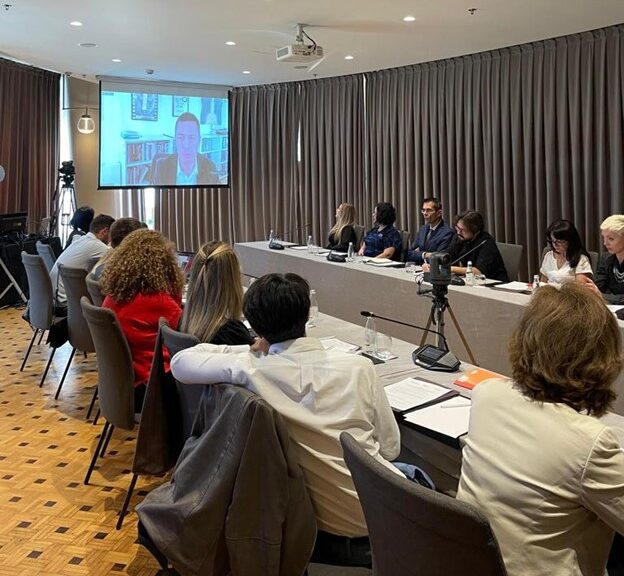
The German Ambassador to Albania, Karl Bergner, underscored the significance of the Berlin Process as a complementary initiative to the EU enlargement process. He highlighted its inclusivity, that involves not only government representatives but also those from civil society organizations, businesses, and regional organizations etc. Mr. Bergner noted that while the BP has yielded some concrete results, such as the mobility agreement contributing to the CRM, further efforts are necessary to achieve tangible outcomes.
In addition to the benefits mentioned earlier by other speakers, Mr. Vanco Uzunov, the Sherpa of North Macedonia, has identified some of the obstacles that have contributed to the delay in the BP implementation and have impacted Enlargement progress. The main ones are political bilateral disputes in the region, limited capacities of public administration, and the structure of economies along with the level of competitiveness of businesses of the region.
During the event, Mr. Miodrag Milosavljević, the Deputy Director for Western Balkans at Open Society Foundations, discussed OSF role as a co-organizer of this year’s Civil Society and Think Tank Forum (CSTTF), alongside CDI and ELIAMEP. The seven CSTTF thematic working groups have produced comprehensive assessments on selected sectors, a product of two visits in Berlin and Brussels, more than 34 meetings with policy-makers all over the region, with EU and with member-states, and with other stakeholders. He added that the results of preparatory work and of the summit need to be completed with a follow up work to achieve the desired outcomes.
The Advisor for Western Balkan Strategy at DG NEAR, Mr. Wojciech Kowalski, stressed that the BP has been essential when the Enlargement was dormant as many “BP initiatives” are Enlargement components – it has injected much needed political will in the process. Its biggest impact is in the 2nd Copenhagen criteria: market economy, as t contributes to: i) a modern economy and good infrastructure; ii) Green Agenda and Digital transition; iii) Regional Cooperation & Reforms; iv) institutional connectivity; and, v) BP has a social inclusion component (i.e. Roma and youth). The upcoming Growth Plan will rely on BP developments and input from the region to push for speedier convergence.


Mr. Steven Blockmans, the Director of Research at CEPS, discussed the lessons learned that the new initiative launched by France i.e. European Political Community (EPC) can get from BP. After mentioning the concerns about EPC wanning influence due to absence of Erdogan in Granda or the conflict in Nagorno Karabakh, he underlined that BP could provide guidance to the EPC on how to apply political will to concrete transnational actions. Concepts such as a willing group of states, well-focused connectivity projects, role of a flag-bearing country (France in this case) and the use of acquis communautaire and of EU normative power can be very useful for the EPC.
The panelists highlighted several key points to work upon while preparing the next summit. These included: i) the need for cooperation in unblocking the signature of CEFTA agreements and ratification and implementation of the already-signed CRM ones ii) start the implementation of reform agendas under the Growth Plan, iii) continue the work with regional cooperation at the political level, iv) make better use of the currently available business platforms, v) explore the cooperation with the European Political Community, etc.

